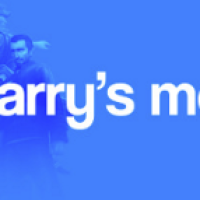JAXenter: What are the technical challenges that lie ahead for blockchain? What are the opportunities?
Dan Middleton: Hyperledger is focused on enterprise blockchain use. In that space, blockchains are all about facilitating agreement among parties that may be in competition with each other. To provide that adversarial trust, nodes in the network must evaluate transactions and communicate to reach protocol agreement. That process will necessarily be slower than a centralized database architecture. This is one of the costs to receive the core benefit of a blockchain network. Performance will be a fundamental challenge of any reasonably distributed architecture.
Privacy and confidentiality fall in the same boat. A blockchain is essentially a shared database. I have colleagues at Hyperledger who hate when I say that. It simplifies too much of the transactional functionality of these systems. However, the end goal is that parties who don’t trust each other can basically read and edit the same database. As this is a shared data layer, it’s fundamentally not secret among participants. Hyperledger projects are actively researching and experimenting with how to satisfy the conflicting goals of shared state agreement among parties and information confidentiality between parties.
Before companies can interact on a network and form business agreements, they need to be speaking the same data language.
Today, most systems are forced to trade one of those requirements off against the other. For example, you can maintain confidentiality of some data by simply not putting that information on the chain, but of course at the expense of actually having network agreement and preservation of that state of information.
Perhaps less exciting to talk about is getting to common data definitions. Before companies can interact on a network and form business agreements, they need to be speaking the same data language. Historically, standards bodies have filled that role, but the rapid pace of blockchain development may lead to less traditional standards bodies.
Each of these challenges is, of course, also an opportunity. Privacy and confidentiality stand out as the biggest of the three technical opportunities here. Given the breadth of blockchain architectures and usages, there’s also going to be a variety of privacy and confidentiality solutions.
JAXenter: Hyperledger currently has 10 projects under its roof but even if it has become a trusted name in the blockchain ecosystem, there are still some misconceptions. What is the misconception that annoys you the most?
Dan Middleton: Well we set ourselves up for one misconception early on. The name Hyperledger is fantastic, and it fits with an early premise that we would make a single blockchain stack. However, that premise very quickly evolved to the point where we are now with a variety of projects. When people first encounter the name “Hyperledger,” many still understandably assume it is a single project, which is a single ledger. I invite everyone to come take a look in our greenhouse and see all the interesting ideas we have growing here. Hyperledger is far stronger for having a diversity of ideas.
JAXenter: Companies and institutions throughout the world have achieved great results with blockchain. For example, Germany’s central bank and Deutsche Börse have successfully completed a blockchain trial for securities settlement. Given all the recent success with this technology, I have to ask: Is blockchain a technology we cannot live without?
Dan Middleton: I actually enjoy NOT selling people on blockchain. I think this technology solves a narrower problem than some of the broad statements in the industry suggest. For blockchain to be really successful, we have to understand where and why to deploy it. In my view, it is primarily valuable when you have multiple parties that need to alter and agree on the state of information without an intermediary. Being more specific about the problem space does not reduce the value. Rather, it’s simply important that we center our enthusiasm.
JAXenter: What fascinates you about blockchain?
Dan Middleton: I love distributed systems problems. One aspect of them is emergent behavior. Can you give autonomous systems each a small and uniform set of rules or behaviors and have the interaction of those systems result in a higher level behavior? That fascinates me. This is exactly the problem for consensus algorithms, particularly random leader algorithms like PoW and Mic Bowman’s PoET.
Blockchains also provide practical requirements for privacy-preserving cryptography. Zero knowledge techniques (proving things without giving away any information) have been around for years, but there weren’t a ton of practical places to make use of them. The explosion of techniques that have erupted since Bitcoin came on the scene is very exciting.
Assuming anyone who is reading this is already interested [in blockchain], I think getting your hands dirty is a great way to build experience and grow your talent.
JAXenter: How can developers interested in this technology start a career in blockchain? What are the dos and don’ts?
Dan Middleton: I think a “do” for any career decisions is to pick something that interests you. The converse is also true – “don’t” pick this as a field if it doesn’t interest you. As far as I can tell, the demand for talent well outstrips supply in blockchain, but just because there’s hiring in this space doesn’t necessarily make it the right decision for you.
Assuming anyone who is reading this is already interested, I think getting your hands dirty is a great way to build experience and grow your talent. Working on an open source project is a fantastic way to start that exploration. It doesn’t have to be a Hyperledger project, of course, but pick a project. Try using it. What didn’t work for you? What could be improved?
If you are a tech writer, help create better explanations for that project. If you are a developer, fix a bug and submit a patch. You’ll quickly learn more than you intended to.
JAXenter: What is the TSC’s plan for the rest of the year? What would you like to achieve next year as the chair of the TSC?
Dan Middleton: The TSC is responsible for the technical governance of Hyperledger projects. We help shape what kind of projects Hyperledger grows. We task technical working groups to solve certain problems or add definition where it is lacking.
In volunteering to chair the TSC, I suggested three areas of focus: Participant Diversity, Interoperability and Reuse, and Technical Direction. I shared that proposal with the community mail list:
Participant Diversity: Our recent TSC candidate pool suggests that the Hyperledger community has not grown to represent the diversity of the broader technical community. As TSC chair, I would like to better understand where we are lacking and create programs to improve representation across the projects, working groups, and leadership.
Interoperability and Reuse: A different sort of diversity is in the technologies that comprise Hyperledger. We have a number of great projects, but currently the whole is not greater than the sum of the parts. I would like to help grow the areas of useful differentiation (particularly where it is not already well supported) while driving toward more reusable components and less redundancy.
SEE ALSO: Making smart contracts safe with Hyperledger Sawtooth
Technical Steering: While we have successfully incubated a number of projects, often the TSC is reactive to the growth of the community. I would like to bring the maintainers of different projects together to identify areas of confluence and actively seek out new projects in areas of weakness to improve the strength of the Hyperledger ecosystem. The crypto-lib lab serves as an interesting example of this kind of directed effort.
Since that time we have created a committee to look at our community health to ensure that we are welcoming and retaining contributors. Hyperledger has grown more quickly than any Linux Foundation project. While it is large, it is still young. Taking an active role in managing that growth is part and parcel with our objective of being the place for serious blockchain development. We want everyone to feel welcome, and thankfully we haven’t had to deal with toxic behaviors, which we certainly won’t tolerate.
In terms of better reuse and componentization, we’ve launched several labs intended to mature into projects offering functionality to the existing platform projects and useful in their own rights.
Working directly in open source development is very rewarding.
We’ve also taken subtle steps towards more proactive steering. In addition to coding projects, we also operate Technical Working Groups and Special Interest Groups. We asked our Governing Board to take oversight of the SIGs so that we can focus more squarely on the technology aspects of the development projects and Technical Working Groups. As the SIGs develop materials, they will share them with the TSC and circulate them to projects and working groups. It’s also worth pointing out here that we pride ourselves on transparency at Hyperledger. Anyone can participate in our Technical Working Groups, SIGS, and software projects.
JAXenter: Can you sum up your experience with Hyperledger?
Dan Middleton: That’s easy. “Best part of my career.” I’ve gotten to do a lot of cool tech over the years. Most of that has been secret, and I haven’t been able to talk to friends or collaborate widely on what I’m working on. Working directly in open source development is very rewarding. I can talk with anyone about new ideas and learn from people who have different backgrounds than me. I really can’t say enough about what a great experience this is.
Thank you!
Have a look at this small interview series we did with seven Blockchain Technology Conference speakers about what blockchain can and can’t do, what it is and what it isn’t. This series is meant to clear the air by answering the most fundamental questions.
Blockchain glossary:
asap
The post “For blockchain to be really successful, we have to understand where and why to deploy it” appeared first on JAXenter.
Source : JAXenter
















